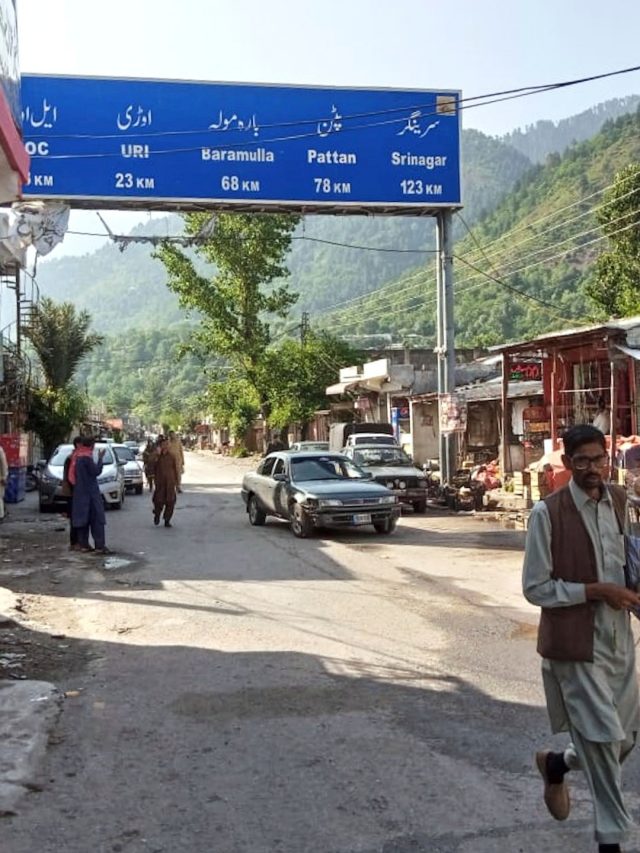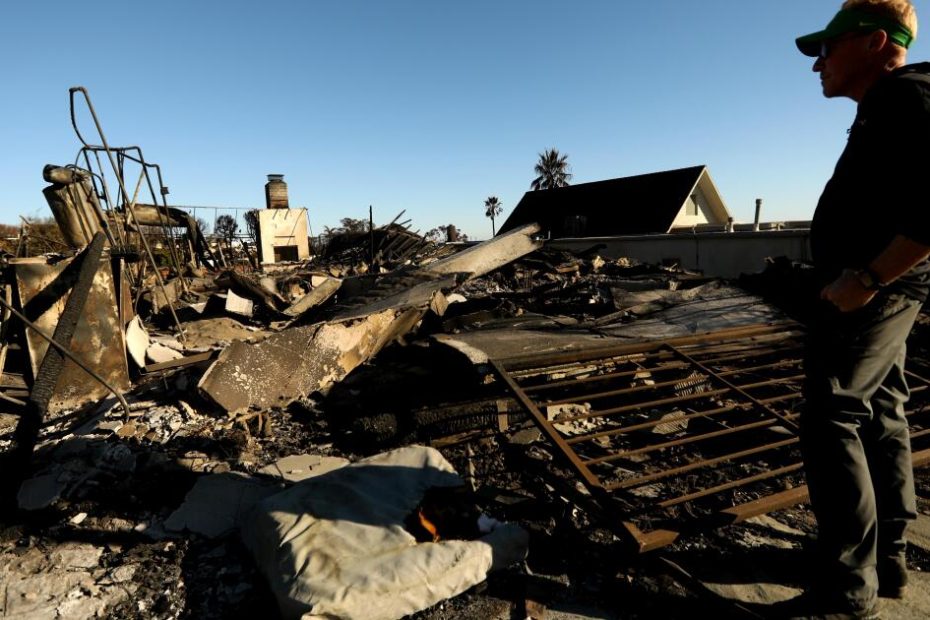Calls for law enforcement as signs of rent gouging surge amid fires

In Los Angeles' Beverly Grove neighborhood, where last week's fire left thousands homeless, asking rents for a two-bedroom apartment soared from $5,000 to $8,000.
In Venice, single-family home prices have increased by nearly 60%. In Santa Monica, one owner listed a five-bedroom house for $15,000 more than last year's asking price, an increase of more than 100 percent.
Temporary price-gouging protections put in place because of the fires were supposed to prevent such drastic rent increases, but a New York Times review of online listings this week showed illegal increases are relatively common. Such listings have been slammed on social media, sparking an uproar that has led to a change of attitude among some landlords and calls for authorities to prosecute those who profit from the pain.
“They need to act quickly to set an example for these folks,” said Larry Gross, executive director of the Economic Survival Alliance, a local tenants' rights group.
Even some landlord groups are jumping on the bandwagon.
“Throw the book at them,” Fred Sutton, senior vice president of the California Apartment Association, told the Los Angeles City Council on Tuesday.
California's price gouging rules take effect for 30 days after a state of emergency is declared, unless extended. In the case of local fires, this means landlords generally cannot charge more than 10% more than what was charged before January 7 or the advertised price.
California Attorney. Gen. Rob Bonta has warned property owners and the public about the rules and vowed to crack down on violators.
Bonta's office would not disclose the number of price gouging complaints it has received. But an agency spokesman said Bonta has recruited a team of attorneys from his offices across the state to evaluate the submissions.
“It is important that the victims of these fires are treated with respect, dignity and fairness,” Bonta said at a news conference in Los Angeles on Saturday. “Price gouging is illegal. We will not stand by and watch.”
If convicted, the landlord faces up to a year in prison and thousands of dollars in fines. But after previous major wildfires, the matter was rarely prosecuted, and some tenant advocates say price gouging is now so common because people think they can get away with it.
In 2018, after wildfires destroyed thousands of homes in Northern California, the attorney general's office filed just two lawsuits against landlords and real estate agents for alleged illegal price increases. State lawmakers expanded the law later that year after advocates and local prosecutors complained it was too difficult to enforce.
At the urging of Los Angeles City Councilmember Traci Park, the city took action Tuesday to increase potential price gouging fines to $30,000 and ensure it has the resources to investigate and prosecute cases.
In a way, modern technology has made it easier than ever to track potential breaches.
As the fires continue to burn, tenant advocates and ordinary citizens are scouring rental listing sites and compiling shareable databases of suspected fraud to share with authorities, the media and social media.
Organizer Chelsea Kirk, who oversees a spreadsheet, said the practice appeared to be “widespread and rampant”, with people expressing their anger directly to landlords and agents.
“People call me and say, 'I'm making it my hobby today to call everyone on the list and tell them what they're doing is illegal,'” said Kirk, policy director for the nonprofit Justice Strategic Initiatives . economy.
So far, it seems to be working. Many of the price-gouged items were either removed or relisted at 10% off or less.
Real estate agent Chad Singer of Amalfi Properties said part of the problem is a lack of understanding by landlords about the rules.
“I've been educated to change it as soon as I realize it's illegal,” Singer said.
Still, complications remain. Singer said the leases have been signed at high prices, which increases the likelihood of lawsuits from signed tenants. Bidding wars have also occurred outside of any formal listing.
One man told The Times that his brother-in-law showed up at a rental open house near Brentwood and was asked by the real estate agent to fill out a form outlining his best offer.
“We think this is still going on in the shadows,” said Anya Lawler, policy advocate at the California Rural Legal Aid Foundation, noting that such cases may be harder to prosecute.
She also worries that price gouging could rear its head again after the initial backlash subsides. “We're not out of the woods yet by any stretch of the imagination,” she said.
Some real estate companies are taking action where possible.
Zillow, the popular real estate listing website that allows viewers to see a history of rental changes in listings, has been featured in social media posts.
Company spokesperson Emily McDonald said that while rents are set by landlords or their representatives, Zillow has begun using its “internal systems” to spot potential violations and remove “prices.” Listings that have risen above the emergency threshold.” “
“Zillow takes seriously the responsibility consumers place on us to promote fair rental practices, even more so during times of crisis,” said McDonald. “If tenants discover potential violations, we encourage them to report the listing to Zillow and California authorities.”
All told, fires in Los Angeles County have damaged or destroyed more than 12,000 homes and other structures, creating a new wave of homeless families in a region already gripped by an affordable housing crisis.
There are concerns not only about price gouging, but also about the widespread knock-on effects of rising costs, as relatively well-off displaced homeowners seek housing in different neighborhoods, causing already-high rents there to rise and existing tenants feeling the pinch of leaving. pressure.
Christopher Thornberg, founding partner of Beacon Economics, said costs are expected to spike immediately, but pressure on the housing market should ease as rebuilding efforts ramp up. After devastating fires in Napa and Sonoma counties in 2017, vacancy rates fell while prices rose. But he said the effects were temporary.
“It disappeared after a year and then came back into trend,” Thornburg said.
However, given the scale of damage in Los Angeles County, rebuilding could take more than a year, and the region is already struggling to secure enough new housing to meet demand.
State and local landlord industry representatives say they understand the region is in crisis and have been encouraging landlords to offer discounts to residents affected by wildfires.
Condo Association. Greater Los Angeles has created a website for landlords to advertise short- and long-term rentals.
The groups have been educating their members about price gouging laws and asking third-party listing services to issue warnings. Deb Carlton, executive vice president of the California Apartment Association, said reports of widespread price gouging are “maddening” and advocated for strict enforcement of the law.
“Landlords are absolutely freaking out,” Carlton said.
But some of them seem to have different ideas.
One real estate agent said her clients said “the 10 percent cap is unrealistic for the volume of demand in the market.” The agent, who asked not to be identified so she could speak freely, said her landlord ordered her to sell a Santa Monica apartment to The rent on each property was raised above the permitted threshold, bypassing the agent's warnings about the law.
“They said they doubted it would be prosecuted.”










